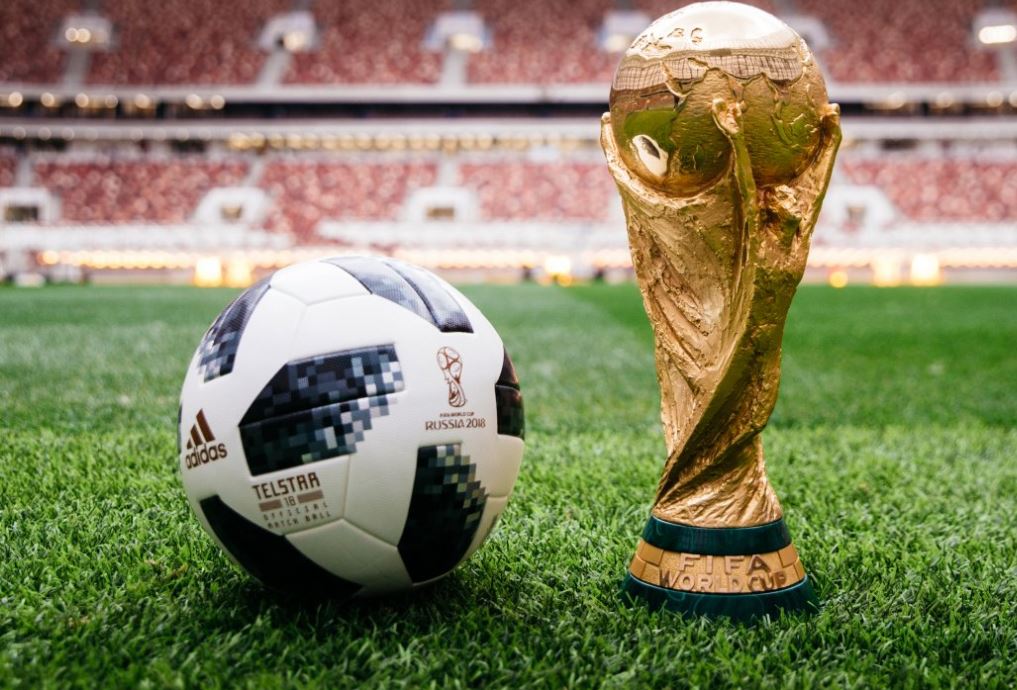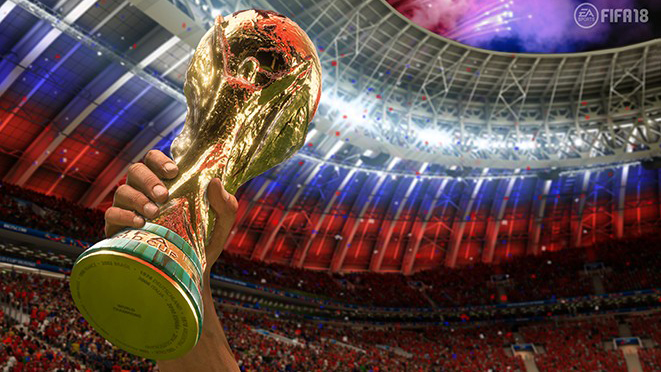Denmark 'wins' mobile World Cup
The World Cup final is on Sunday, but one honour has already been decided

This weekend's World Cup final will determine which country has the right to call themselves the best football team in the world. But there’s another title up for grabs – the mobile network World Cup.
OpenSignal, whose network data comes from hundreds of millions of samples from tens of thousands of devices, has devised a tournament to see which of the 32 participating nations has the best connectivity.
The process is far from scientific, and OpenSignal itself admits it’s just a bit of fun. After all, who doesn’t enjoy a little bit of competition?
Mobile World Cup
The first round of the tournament was contested on overall download speed. The groups are the same as they are in the real FIFA World Cup and the top two in each will progress to the second round.
Eleven of the 16 nations that qualified for the second round in Russia also progressed in OpenSignal’s tournament. In Group C, Australia’s 32Mbps saw it advance ahead of France (20Mbps), while Iceland’s 37Mbps trumped Argentina’s 10Mbps in Group D.
As for Group E, Serbia’s 17Mbps meant it progressed instead of Brazil, while in Group F, South Korea’s position as the most advanced mobile nation in the world (45Mbps) saw it push Mexico into 3rd. In both the FIFA World Cup and the OpenSignal World Cup, Germany (19Mbps) failed to advance. Both Belgium (30Mbps) and England (19Mbps) emerged victorious in Group G, while Poland’s 15Mbps was superior to Colombia’s 9Mbps.
In general, Europe fared well with 12 of 16 teams progressing, alongside Uruguay, Australia, Japan and South Korea. Of course, some countries like France and Germany would have been among the fastest 16 nations, but were placed in ‘groups of death’. The wooden spoon was shared by Nigeria and Senegal who both achieved just 4Mbps.
Sign up to the TechRadar Pro newsletter to get all the top news, opinion, features and guidance your business needs to succeed!

Knockout stages
But fast 4G speeds aren’t enough to advance in this competition. The criteria for the round of 16 was 3G download speed. England’s 7Mbps was enough to defeat Japan on 4Mbps, while Spain (6Mbps) beat Russia (5Mbps) and Denmark (9Mbps) won the battle of the Nordics with Iceland (9Mbps).
Belgium (9Mbps) beat Poland (5Mbps), Croatia (8Mbps) defeated Australia (6Mbps), and Portugal (6Mbps) won out against Uruguay (3Mbps). Sweden’s 11Mbps was the most of any country and enough to bear Switzerland (6Mbps) but the biggest upset was Serbia’s (9Mbps) triumph over South Korea (5Mbps).
Here we can see that the more advanced 4G nations do not have the same pedigree in 3G, with the notable exception of Sweden.
The start of the business-end of the tournament was decided on 4G upload speeds. Of the eight OpenSignal quarter-finalists, only half also made the same stage of the FIFA World Cup.
Croatia (13Mbps) progressed to the semi-finals with victory over Portugal (9Mbps), while Belgium (13Mbps) recorded a win over Sweden (9Mbps). Denmark’s 16Mbps was enough to beat Spain’s 11Mbps in a high scoring game, while Serbia (12Mbps) beat England (8Mbps).
For the semi-finals, OpenSignal separated the teams with 4G download speeds, a move which allowed Belgium (35Mbps) to sneak into the final ahead of Croatia (31Mbps). They would face Denmark (36Mbps) who bear Serbia (31Mbps) in the other tie.
The final
The final itself was settled on overall download speeds and was won by Denmark’s 31Mbps over Belgium’s 30Mbps. This is the equivalent of a football match going to extra time and penalties.
Given the unpredictability of Russia 2018, a Belgium v Denmark clash isn’t as surprising as it would have been when the mobile tournament was conducted but it certainly was down to the luck of the draw.
“Denmark is unquestionably among the global leaders in every mobile broadband metric we measure, but a lot of Denmark’s success in the OpenSignal World Cup depended on the luck of the draw,” said OpenSignal.
“Denmark did survive one of our groups of death, but only as runner-up. Thanks to the early 3G stumbles of Australia and South Korea, Denmark managed to avoid the intimidating 4G threat of those Asian countries in the penultimate stages. That, in turn, allowed Denmark to dominate the later rounds, all the way up to its skin-of-its-teeth win over Belgium in the final game.
Denmark famously won Euro 1992 after Yugoslavia were forced to withdraw, so you could argue that it’s the country’s second major title and some consolation for the national team’s heart-breaking defeat in the second round against hosts Russia.
Or, maybe not. You can tell then.
- Check out the best mobile deals for July 2018
Steve McCaskill is TechRadar Pro's resident mobile industry expert, covering all aspects of the UK and global news, from operators to service providers and everything in between. He is a former editor of Silicon UK and journalist with over a decade's experience in the technology industry, writing about technology, in particular, telecoms, mobile and sports tech, sports, video games and media.